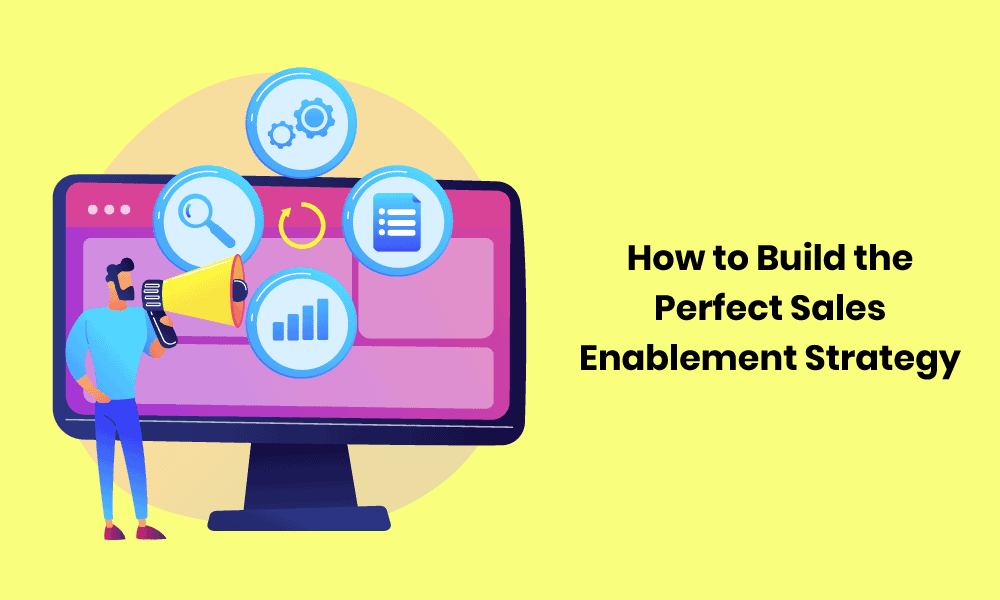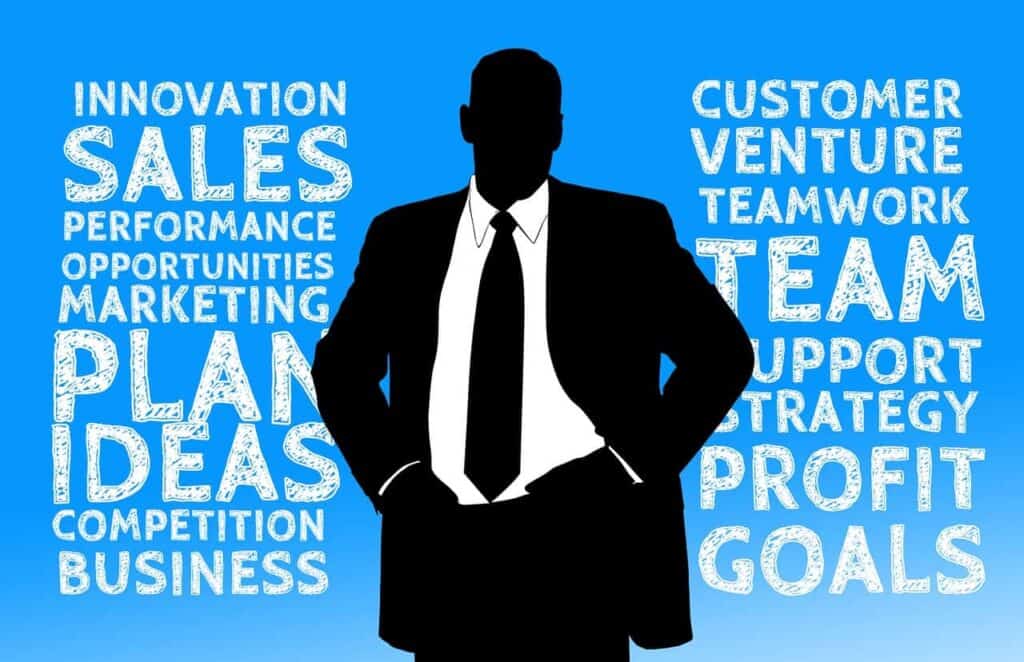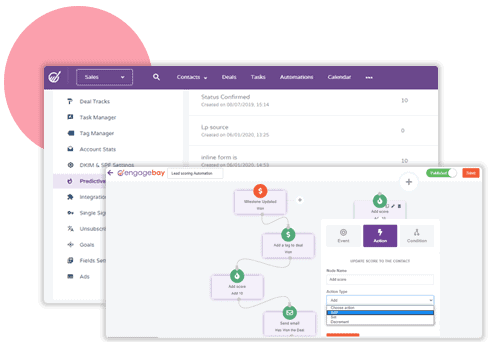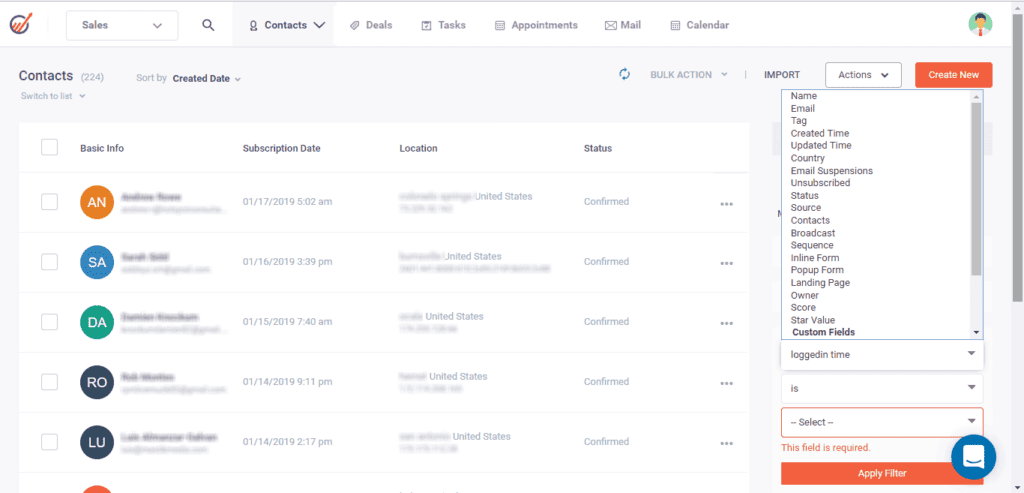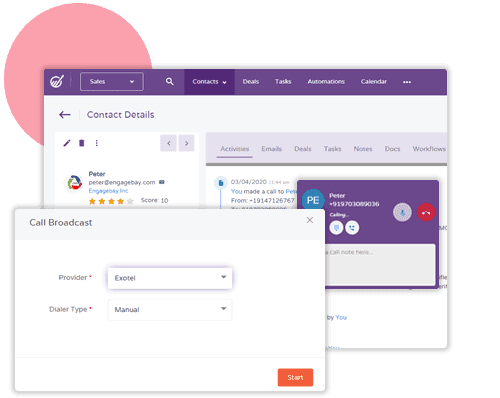Many businesses are adopting sales enablement solutions to solve their sales challenges.
If you are reading this article, you have probably come across the term ‘sales enablement.’ A survey revealed that companies with sales enablement have 15% better win rates than those without it.
The equation is quite simple. If you give someone a task to do with all the necessary resources required, they will probably complete the task more efficiently than those who don’t have the means.
Your sales team is no different. But how do you ensure that your sales team gets all the necessary resources to close more deals and boost conversions?
Fret not, this guide will give you a clear picture of how sales enablement works and how you can get started. Let’s dive in.
What Is Sales Enablement?
Table of Contents
Sales enablement is the process of providing relevant resources and appropriate training to your sales team for effective selling.
These resources may include tools, knowledge, and content that might help boost up the sales process and drive revenue by strengthening the sales function for your business.
In essence, sales enablement is the practice of making the sales process as easy as possible while improving customer experience.
What Are The Key Functions of Sales Enablement?
Each organization can have its own framework. However, the primary goal of sales enablement is to align marketing, sales, and customer support elements.
The marketing team’s responsibility is to provide sales reps with resources that will help them nurture their leads and effectively close deals.
It includes blogs, videos, product guides, and others, which allows engaging potential customers.
Reps share these resources with their leads to help them decide whether or not they want to convert.
Both marketing and sales teams can get together to decide what type of content and material are required that they can share throughout their buyer’s journey.
The essential sales enablement functions include:
- Content development for sales communication
- Optimization of technology resource such as automating prospecting, creating email sequence, and using sales enablement software
- Talent management for performance analysis, enablement, and coaching
The ultimate aim is to help fine-tune the sales process so that it aligns with the buyer’s journey and increases the chance of a conversion.
The process of sales enablement optimizes value for both buyer and seller over time (in terms of ROI).
In other words, sales enablement helps drive potential buyers, improve sales productivity, and maximize revenues.
The Sales Enablement Process
The process of sales enablement is still evolving.
But if we had to look from the buyer’s side, sales enablement:
- Assists in aligning sales process with the buyer journey
- Serves as a feedback loop between prospects, customers, and employees
- Helps in customization of engagement tools and sales and marketing communication
Similarly, on the seller side, the sales enablement process can:
- Help with recruitment and onboarding as too many sellers on the floor can impact profit margins. But the organization also needs the right number of top talent to meet targets and grow revenue.
- Provide sales training and coaching to continuously hone sales reps skills, build knowledge, and harness resource to drive customer conversions and win rates
- Help deploy powerful sales tools that can shorten sales cycles, improve conversation, and generate valuable business insights that provide a game-changing advantage.
CRM Analytics can help make smarter decisions to serve customers better and increase sales.
The Impact of Sales Enablement Strategy on the Sales Team
The sales enablement process helps sales teams conduct a more effective sales funnel with a chain of procedures.
The sales enablement analytics provide data-driven insights that further assist in optimizing business growth.
Here are a few ways the sales reps become more productive with the process in the following aspects:
- It provides flexibility in presenting the sales content to prospects and customers.
- It helps connect the sellers with the best relevant content. This results in maximized buyer engagement and increased sales revenues.
- The sales enablement strategy helps in analyzing the real-time visibility of the buyers with the products. It enables you to understand the effectiveness of the content.
- Sales enablement helps in implementing advanced analytics. The content training and optimization processes even work best for attaining the desirable business output.
- The strategy promotes the sellers to get the training and learn the process. The result-oriented training motivates the sales professionals for enrollment and getting good leads.
Gain deep customer insights and build stronger customer relationships to convert leads into happy customers with sales management software.
Why Is Sales Enablement Important?
Having a well-defined strategy in place increases the chance of closing a deal. This is exactly where sales enablement comes in.
The role of sales enablement is to make sales reps feel empowered by equipping them with the necessary resources and reducing their pain points.
It has vital importance in the successful maintenance of the sales operations.
A sales enablement program meets the mentality of modern buyers by adding values and helping in buying decisions throughout the buyer’s journey.
To meet the expectations, the strategy is not only essential but competitive also.
As a starting point, the process assures the right content at the right time to ensure increased buyer engagement. The practice enables the sales teams to provide a smart and effective selling strategy and vice versa.
Acts as a Coordinator
The sales enablement process includes both marketing and sales teams. Thus, it ensures that while creating a sales strategy, the goals of both departments are aligned.
The sales enablement works as a mediator, enhancing the win rates of the marketing and sales process. The strategy has positive impacts in filling up the gaps between these two departments under the organizations.
Ensures Effective Communication
The process proves beneficial in conveying the difficulties of the sales to the marketing team.
Sales can effectively communicate with the marketing team about the missing materials and content they can share with their leads.
They can request specific tools and help in building strategies.
Marketing people can then create and share those requested materials to help reps reach customers and sell more effectively.
Optimizes Buyer’s Journey
Effective sales enablement effort is all about creating and sharing content and other resources that fit right into the buyer’s journey.
It helps in nurturing leads in the right way and improving their experience. This allows customers to make a decision about whether to buy your product and service or not.
It results in happy customers, thereby increasing your retention rate as well.
Improves Ongoing Sales Process
The sales enablement process increases the efficiency of all reps in the department. For instance, the process helps create necessary content training assets and established clarity.
Besides, the organization doesn’t need to be dependent on the best performing sales reps. It helps in the successful elevation of the B- and- C-level sales reps resulting in the best organizational development.
Read also: Buyer Enablement: Make Your Customers Start Believing & Buying
How to Plan an Effective Sales Enablement Strategy?
Sales enablement services include better sales conversations by enhancing sales performance levels.
For the effective deployment of sales enablement, you need to develop a strategy. This sales enablement strategy is made up of several components.
These include mission, target, responsibilities, and omissions.
Here are a few steps that you need to follow to create a well-defined strategy.
1. Defining Sales Enablement for Your Organization
Sales enablement services are unique for every single organization. That’s why it’s essential to clearly define the understanding of the process to your employees.
The sales enablement leader should identify the functions and educate the organization about the different roles that need to be performed.
This will include the sales process creation and delivery, onboarding processes, along with consistent training and coaching.
Moreover, it even inclines towards skilling up the sales managers and strengthening the sales process.
There are the following factors that need to be considered before defining sales enablement:
- Industry type
- Specific selling environment
- Concerned business plans and sales operations
- Challenges and strength areas you have as an organization
There is no denying that planning and executing the whole sales enablement process isn’t easy.
That’s where you can make good use of the sales enablement manager’s expertise along with the required technology to keep track of the entire process.
2. Determining the Role of Your Salespeople
The next step is to identify the role your marketing and sales reps are going to play. It’s crucial as it helps define individual roles and conduct smooth operations.
Here are a few things you can monitor and optimize your strategy building around —
How are the salespeople of your organization positioning your product with competitors?
How are the salespeople attending the calls and responding to the queries?
Is there a lie in any customer segment for assuming the greatest future success?
What strategies are the salesperson building to move the sales prospects forward?
As a sales enablement manager, it’s your responsibility to keep track of your sales reps’ activities.
3. Deciding the Involvement of the Team Members
Sales activities cannot proceed in silos and maximize the profit returns.
They seek the help and support of the organizational departments and skilled team members for exceptional success.
During the planning process itself, there should be a process to decide the involvement of the department along with the concerned sales reps. This will help avoid any chaos in the future.
4. Involvement of the Specific Organizational Departments
The following departments play a vital role in association with the sales organization in building the perfect sales enablement strategy:
Marketing
Sales and marketing teams work best together for maximizing profits. Skilled individuals teach core business strategies for maximizing sales.
Customer Service
Customer service reps are the key to uncover exceptional business sales. The more equipped the customer service professionals are, the better will be the selling efficiency.
Account Management
Account management is essential whenever there is a dedicated team of sales professionals. It is necessary to maintain proper inbound and outbound information. The proper maintenance of the inflow and outflow of goods is even compulsory in association with the sales cycle.
5. Strategy Deployment and Reinforcing the New Methodologies
It will be essential to deploy the sales enablement strategy after creating an action plan and identifying the opportunities.
After the deployment procedure, the process should reinforce the training methodologies with the refreshers.
Moreover, the appropriate and on-time checking using the metrics, surveys, and ROI tools is essential for needful optimization.
6. Giving Your Plan the Best Chance For Succeeding
The best way to succeed is to carefully map the execution plan before starting the actual work.
You can do this practice on your own. However, consulting a professional practitioner will help you gain brownie points as they are familiar with common mistakes and will immediately point them out to you.
Besides, the practitioner can collect the deal, account, and contact information in one place and avoid any hassles.
A successful sales enablement strategy also includes collaboration, communication, and providing feedback.
Using the sales enablement tools, you can automate the sales chain and speed up the working process. Educate your salespeople about the value of these tools so that they can make the best use of them.
Why Your Company Needs Sales Enablement
A lot has been said about sales enablement. But just because you see the value of sales enablement doesn’t mean your other leaders or executives do too.
It’s crucial to show them how the process of enablement is going to benefit the entire organization. Without top-level executives’ support, you will have a hard time achieving results.
Here are the reasons:
- The sales enablement process enhances the departmental collaborations. The concerned strategies fill up the gap between the departments and permit them to process as a team.
- The marketing and sales departments working as a single team with the strategy helps in several aspects of the development and management of the sales pipeline. They share the data and intelligence and build up the lead scoring metrics based on the prospects and necessities.
- This strategy lets all departments combine to achieve a goal for the benefit of the organization. Rather than working on odd issues, the entire organization focuses on achieving the best sales target and maximizing the profit.
- The strategy provides the practicalities to the organization to stay in touch with the buyers. The salespeople concerned with the organizations receive special training. This helps in process automation and generating iconic sales.
- The sales enablement strategy helps in building up meaningful relationships with the buyers. The buyers are busy and never want to entertain fake sellers. It even makes up the sales process customizable.
- The sales enablement strategy ensures the availability of consistent brand messaging.
Several Advantages of Sales Enablement
To sum up, let us have a quick overview of the advantages of implementing a sales enablement process into your organization.
- Increases sales conversion: The sales teams get benefited from the process to engage the targeted customers and generate bigger sales.
- Enhances customer buying experience: The sales enablement program provides resources for every stage of the buyer’s journey. It helps customers get connected for the long term.
- Saves times: Time is money. The sales enablement strategy helps the sales team save extra time and focus on other developmental prospects.
- Generates more leads: The strategy helps provide homogenous selling tools to the sales professionals. The tools allow the team in several ways for generating leads and enhancing the sales profit.
- Increases process efficiency: There exists a dedicated department for the monitoring process. No more time gets wasted with the automated process. Even the process becomes fast and well-organized.
Conclusion
Truth be told, salespeople play a vital role in the success of a company. Without them, it would be hard to get customers to buy your products.
They work hard to nurture and generate the biggest selling profit for the organization.
Organizations must understand the hard and dedicated efforts of the salespeople. Simultaneously, they need to find ways to fine-tune their skills and further assist in providing all possible help.
Putting the sales enablement strategy in place would benefit both the company and the salespeople. After all, the ultimate goal is to help increase conversion and maximize profits for the business to keep running.
The method teaches the automation processes to the salespeople in no time. The profit seems exceptional with little or no effort.
Go ahead with the details discussed above, understand the sales enablement mechanism, and win your prospects and customers.
For best results, you can look at EngageBay’s sales enablement platform to go with.
